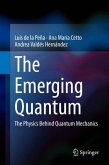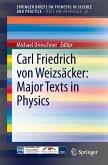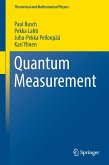This monograph presents the latest findings from a long-term research project intended to identify the physics behind Quantum Mechanics. A fundamental theory for quantum mechanics is constructed from first physical principles, revealing quantization as an emergent phenomenon arising from a deeper stochastic process. As such, it offers the vibrant community working on the foundations of quantum mechanics an alternative contribution open to discussion. The book starts with a critical summary of the main conceptual problems that still beset quantum mechanics. The basic consideration is then introduced that any material system is an open system in permanent contact with the random zero-point radiation field, with which it may reach a state of equilibrium. Working from this basis, a comprehensive and self-consistent theoretical framework is then developed. The pillars of the quantum-mechanical formalism are derived, as well as the radiative corrections of nonrelativistic QED, while revealing the underlying physical mechanisms. The genesis of some of the central features of quantum theory is elucidated, such as atomic stability, the spin of the electron, quantum fluctuations, quantum nonlocality and entanglement. The theory developed here reaffirms fundamental scientific principles such as realism, causality, locality and objectivity.
From the book reviews:
"This is an excellent advanced book on proofs of the major theories on Quantum Mechanics from the Planck, Heisenberg, deBroglie, Schrodinger, Einstein traditions. ... This is primarily for cutting edge graduate physics students and researchers. ... I think this book deserves a place on the shelf of every quantum physicist and learner of theoretical physics." (Joseph J. Grenier, Amazon.com, February, 2015)
"This is an excellent advanced book on proofs of the major theories on Quantum Mechanics from the Planck, Heisenberg, deBroglie, Schrodinger, Einstein traditions. ... This is primarily for cutting edge graduate physics students and researchers. ... I think this book deserves a place on the shelf of every quantum physicist and learner of theoretical physics." (Joseph J. Grenier, Amazon.com, February, 2015)








